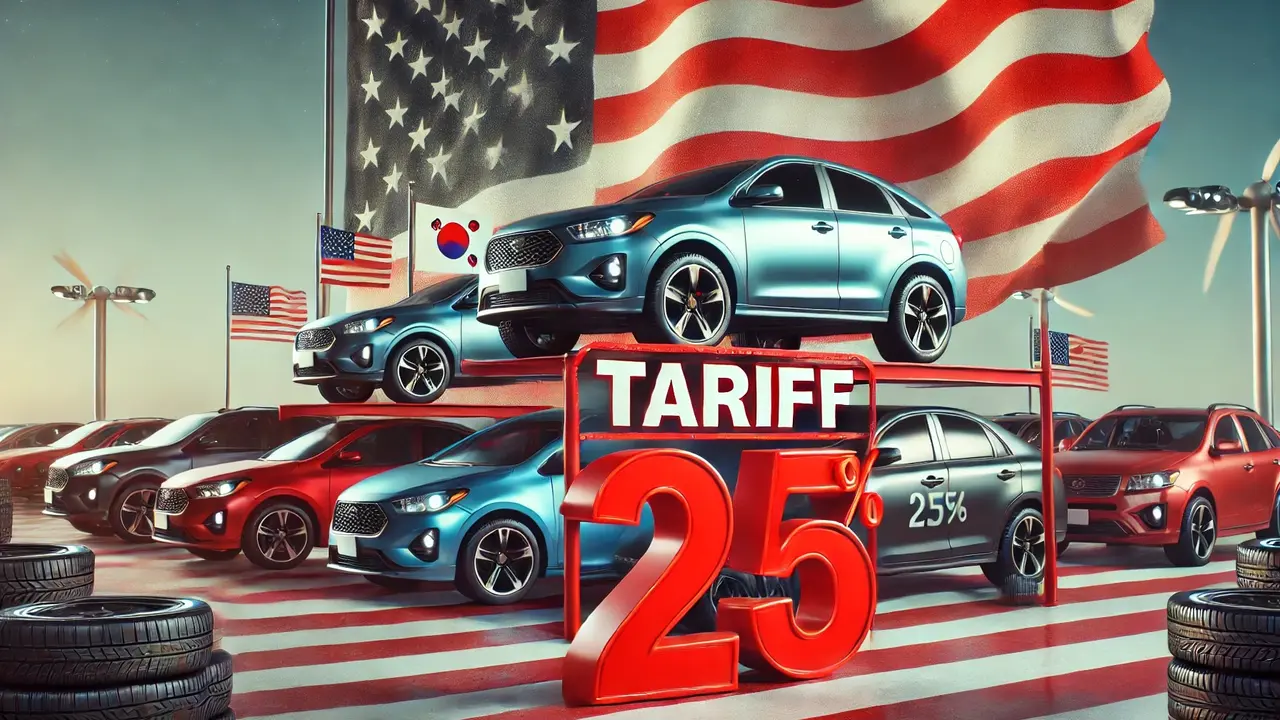Updated 27 March 2025 at 17:50 IST
Auto Stocks Down: What Should Investors Do?
U.S. President Donald Trump announced a 25% tariff on imported cars, set to take effect on April 2.
- Republic Business
- 3 min read

In a bold move aimed at boosting domestic manufacturing, U.S. President Donald Trump announced a 25% tariff on imported cars, set to take effect on April 2.
The decision, intended to encourage automakers to establish production facilities within U.S. borders, is expected to have wide-ranging implications for the global automotive industry.
The tariffs will impact nearly half of all vehicles sold in the United States, including American brands assembled overseas.
Auto Stocks Today
The BSE Auto Index finished at 48,220.85 on March 27, 2025, down 483.60 points or 0.99% from its previous close of 48,704.45. The index opened lower at 48,060.97 and varied during the day, reaching highs of 48,424.22 and lows of 47,592.38.
Advertisement
Hero MotoCorp topped the gainers, closing at Rs 3,763.15, up 3.23%. Tube Investments of India (TIINDIA) increased 2.16% to Rs 2,768.45. TVS Motor, Bosch, and Exide Industries also experienced slight increases of 0.96%, 0.91%, and 0.22%, respectively. Bajaj Auto gained 0.02%, closing at Rs 7,975.65.
On the downside, Maruti Suzuki dropped 0.09% to Rs 11,721.65, while Apollo Tyres and MRF fell 0.24% and 0.32%, respectively. Mahindra & Mahindra dipped 0.35%, while Eicher Motors sank 0.97%.
Advertisement
Balkrishna Industries and Uno Minda dropped 0.99% and 1.55%, respectively, while Motherson and Bharat Forge fell even further, by 2.22% and 2.30%.
Ashok Leyland went down 2.77%, Sundram Fasteners fell 3.96%, and Tata Motors led the laggards, dropping 5.56% to Rs 668.60.
On the other hand, 4 out of 15 stocks managed to end positive while the Nifty Auto index closed 1% lower at 21,516.75.
Limited Impact on Indian Passenger Car Exports
This has caused alarm among Indian investors who have invested in automobile stocks.
However, for India, the direct impact of these tariffs on passenger car exports appears minimal. According to commerce ministry data, India's passenger car exports to the U.S. in 2024 amounted to just $8.9 million—a mere fraction of the country's total car exports worth $6.98 billion.
A report by the Global Trade Research Initiative (GTRI) suggests that the tariffs are unlikely to disrupt India's growing car export industry significantly.
Concerns Over Auto Parts Exports
While passenger car exports may remain largely unaffected, the story is different for auto parts. The U.S. accounts for approximately 29.1% of India's global auto parts exports, making this sector more vulnerable to the new tariffs. Industry experts have expressed concerns about the potential short-term impact on this segment.
"We see the pressure on the Nifty auto index, which has closed around 1% lower today," noted Sugandha Sachdeva, Founder of SS WealthStreet. "This is major because Trump has placed 25% tariffs on imported cars, targeting $100 billion in tax revenues. While passenger cars may not see a major impact due to negligible exposure, auto parts exports to the U.S. are a significant area of concern."
What Should Investors Do?
Despite these challenges, there is optimism that the situation can be managed through bilateral negotiations. India is reportedly in talks with the U.S. to address the issue, with a willingness to explore tariff reductions. Additionally, the broad-based nature of these tariffs, which apply to multiple countries, ensures a level playing field for exporters.
"Markets and stocks will take their own course depending on corporate earnings and the overall global economic environment," the analyst added. "In the long run, these tariffs are unlikely to be a major dampener for auto stocks."
Published By : Anubhav Maurya
Published On: 27 March 2025 at 17:48 IST
